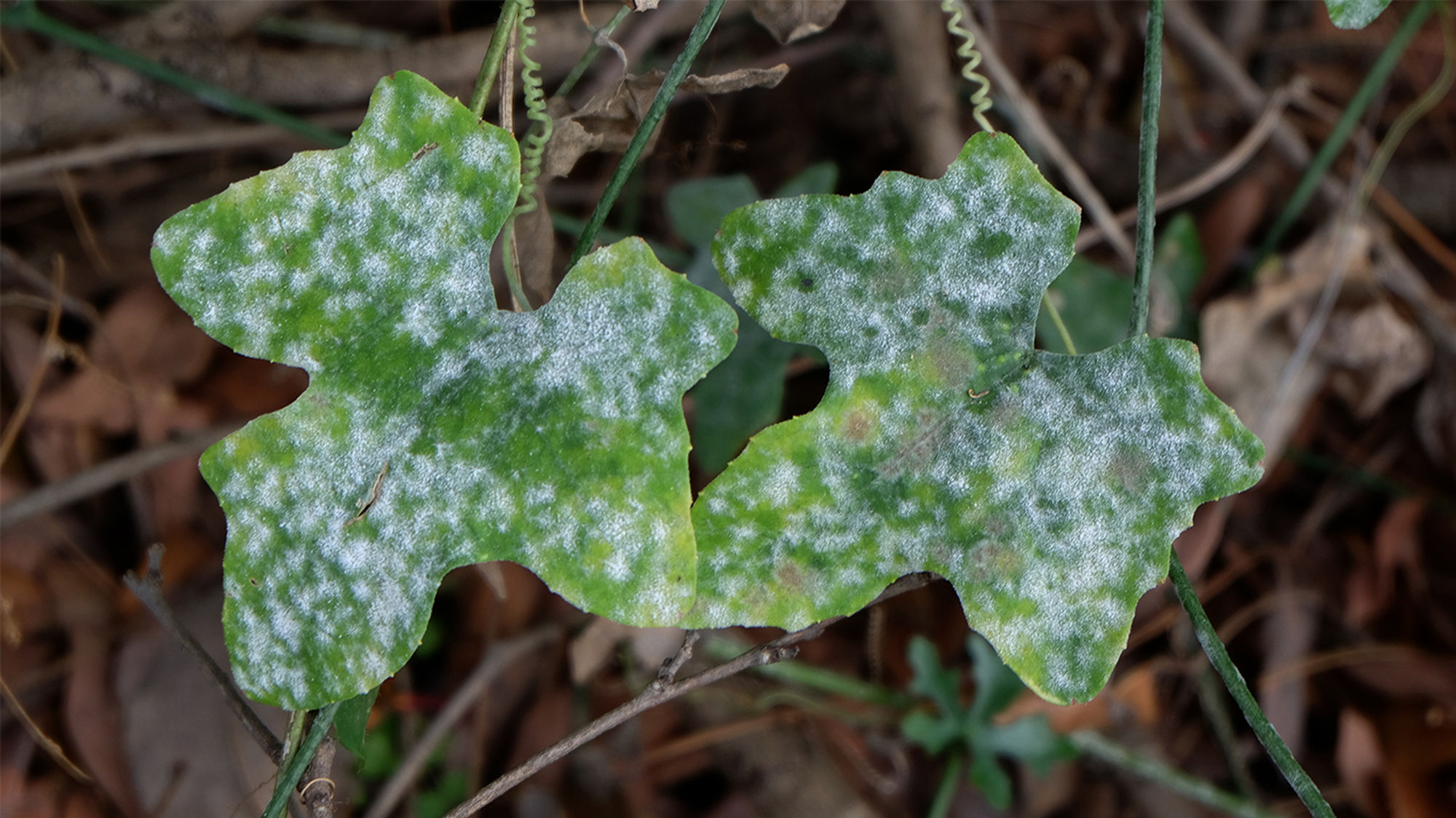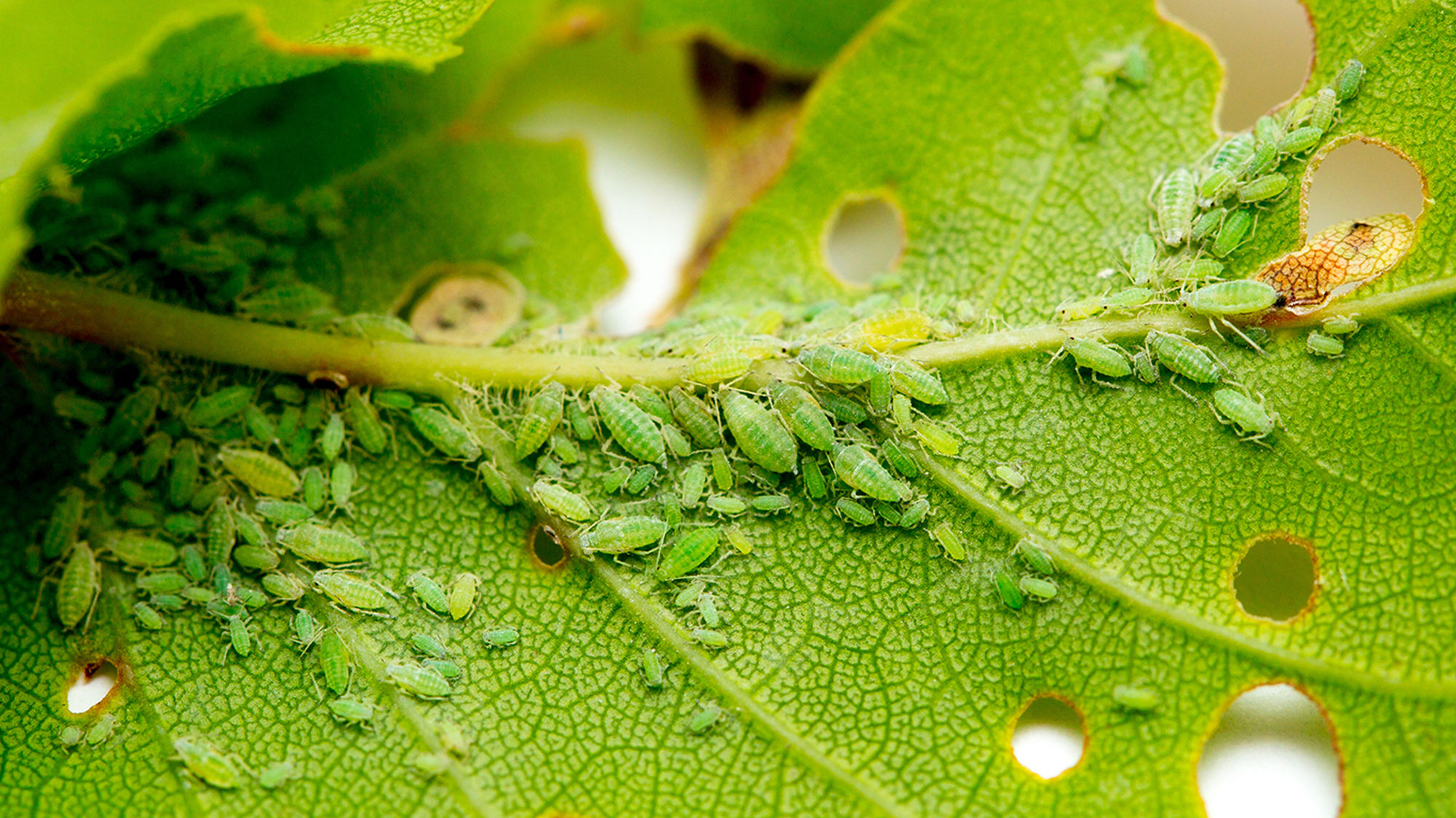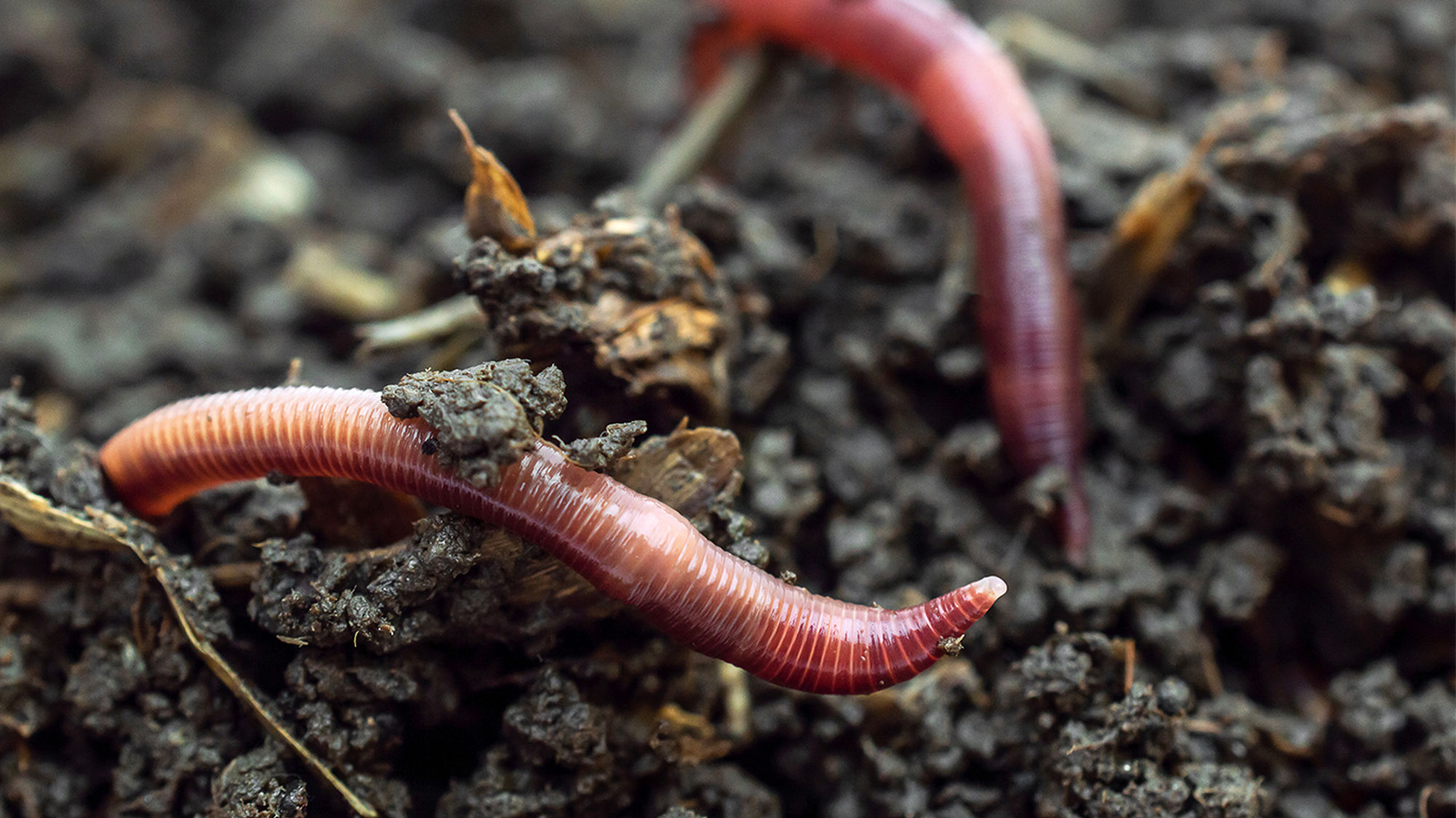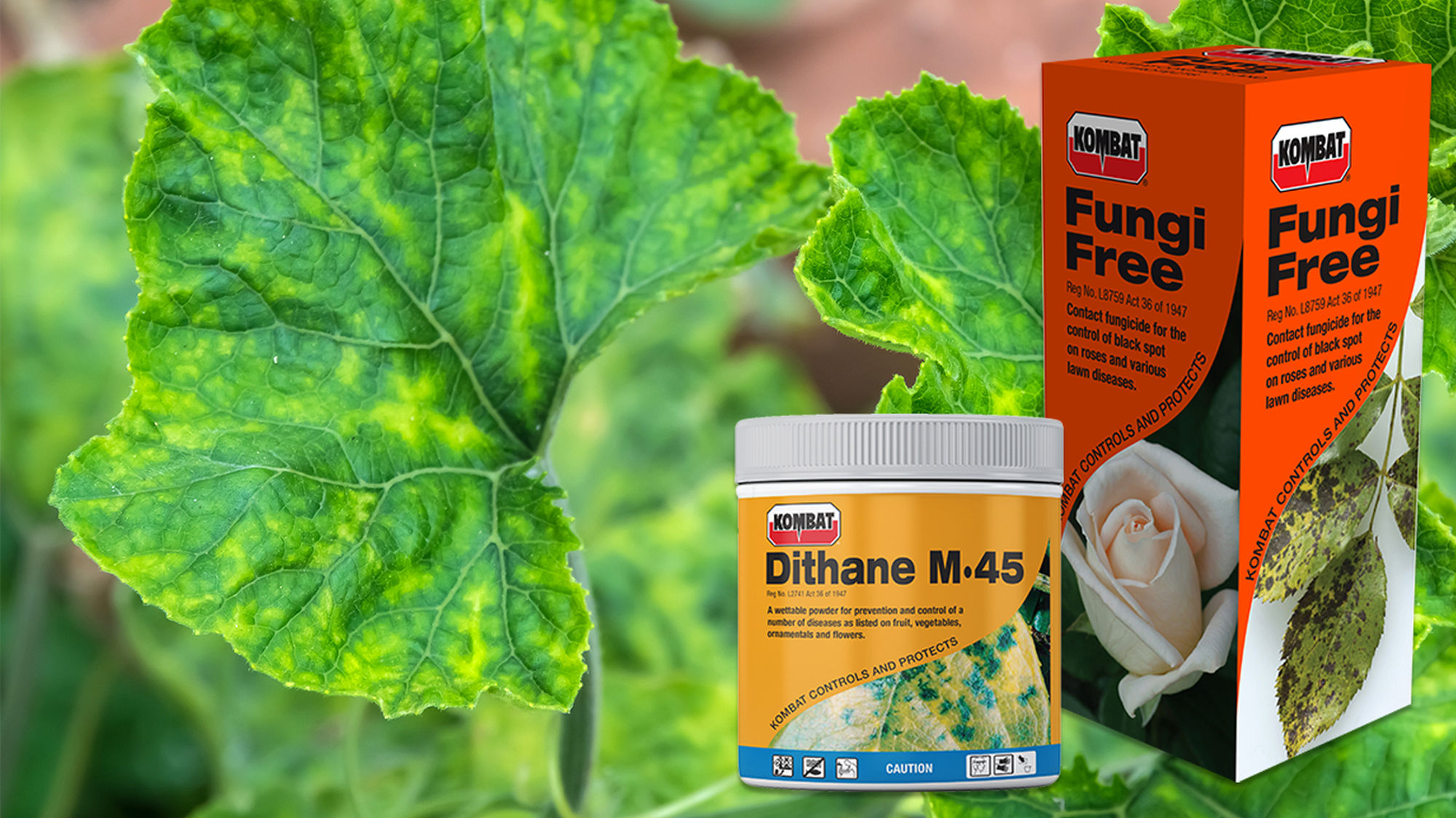Plant diseases
Fungi, bacteria or viruses can cause plant diseases. And, as in the case of human diseases, because viruses live in the cells of live organisms, they are hard to combat. Bacteria and fungi are much easier to control. Still, it requires vigilance to stay on top of the large variety of fungal infections that can be devastating to food crops and ornamental plants.
2021 is ending on a good note, with the summer rainfall areas experiencing good rains. This means Mother Nature’s little beasts are in full swing, procreating to ensure the survival of their species, often at the cost of food crops and ornamental plants.

The role of insects in spreading plant diseases
Insects and mites are often the mechanisms that catalyse the outbreak of plant diseases. Aphids, leafhoppers, thrips, and leaf miners can be very dangerous for food crops because not only do they damage plants, but they are also vectors of some bacterial, fungal, or viral diseases. Therefore, managing insect and mite pests is essential to healthy plants.

Start with healthy plants
Starke Ayres is one of the country’s most prominent quality ornamental and food crop seeds breeders. The Starke Ayres seeds are produced under well-managed cultivation practices to ensure seeds are free of disease, insect pests, and 100% viable. A gardener or small-scale farmer can rest assured that a Starke Ayres seed is a guarantee of a strong and healthy plant. Seeds marketed by Starke Ayres are also protected against seed decay and fungal infections with suitable seed dressings. It makes sense for any grower to invest in healthy seeds before spending more money on other inputs like fertilizers and pesticides.
Make the soil healthy
No matter how good seeds are, they need healthy soil to grow well. Healthy soil must have lots of mulch, carbon, micro-nutrients, earthworms, clay particles and beneficial soil fungi and micro-organisms. Compost that has been appropriately cured to kill weed seeds or kraal manure (that has also been well cured) is a good start, while bone meal adds calcium phosphate that is essential for a robust root system. Fine charcoal assists with aeration and binding some nutrients for slow release, while clay particles do the same and hold water longer than sandy soil. Plants in poor soil are also more prone to fungal infections.

Keep an eye on weather patterns
Weather conditions play a vital role in disease development in food crops and ornamental plants. Moist and warm conditions are conducive to disease development. Check plants daily for the following symptoms on leaves, twigs, growth tips and fruit:
- White mould under leaves
- Dark smutty spots anywhere on the plant
- Brown stains underneath or on top of leaves
- Chlorosis (losing green colour and becoming yellow)
- Black dead leaf ends
- Smelly brown rotten spots in fruit
These are symptoms of plant diseases, often catalysed by insects that chew on the plant, drain plant sap or burrow into leaves.
Tackle plant diseases early
If infected parts are localised and not widespread, those plant parts can be removed and destroyed by burning. Plants infected should be eradicated to prevent them from being fungus hosts. Additionally, there is the requirement to apply a broad-spectrum fungicide such as Kombat Dithane M.45, which contains mancozeb. One of the most significant failures of fungicide application is an ineffective cover, meaning the entire plant is not covered with the spray mixture. It is a non-systemic fungicide with protective action, which means when the first signs of fungal infection are noticed, the crop or ornamental plants should be treated with a full cover spray to prevent the fungus from spreading. Take note of the withholding period under “Warnings” on the label, and do not harvest edible plant parts before that time has elapsed.
Kombat Dithane M.45 is registered to control various types of leaf spot, rust, blight, dead-arm disease, downy mildew and anthracnose on many edible crops and ornamentals.
Kombat Fungi-Free, which contains chlorothalonil, is an age-old fungicide registered especially for roses and lawns to prevent diseases like Sclerotinia (dollar spot) and Rhizoctonia in lawns and black spot in roses. As with Kombat Dithane M.45, ensure the entire plant is covered with the spray to kill off any existing fungus and protect against further infections.

Check for spread of fungal diseases
Many fungi, such as downy mildew, can infect a variety of ornamentals and food crop plants. The presence of downy mildew on an African olive is hardly ever an issue for this indigenous plant, but if it is close to a vegetable garden, one needs to control the fungus before it sporulates and infects plants that are very susceptible to it. As mentioned before, high humidity and high temperatures aided by windy conditions, are a tell-tale sign of fungal infection and spreading of the diseases. Insects such as aphids and ants are macroscopic warnings of possible fungal infections, while close inspection of the underside of leaves to find thrips, may set off the triggers to prepare for a battle against fungal infections.
Kombat has a range of home garden insecticides to effectively control most plant pests; start off with scouting for insect pests and control them before they damage plants and make them prone to fungal infections. Lawns may warrant a thorough investigation to determine whether a fungal infection is not caused by ants, harvester termites, mole crickets or lawn caterpillars. Roses are magnets for aphids that may inoculate them with fungal diseases. Tackle these insect pests before launching a disease control plan.
Always follow label instructions
Every Kombat pesticide has a label that is the “textbook” of the product. Read it and adhere to it. Use personal protective clothing. Keep children and pets out of the treatment area while spraying and until it has dried off completely. Lock all pesticides away when not in use and do not leave pesticides or spray mixtures unattended.
Registration details
Kombat Dithane M.45 L2741, contains 800 g/kg mancozeb, CAUTION. Kombat Fungi Free L8759, contains 720 g/l chlorothalonil, CAUTION. Registered in favour of KOMBAT (Pty) Ltd. Reg. No./Nr. 1979/001492/07 P.O. Box 514, GREYTOWN 3250, KwaZulu-Natal.